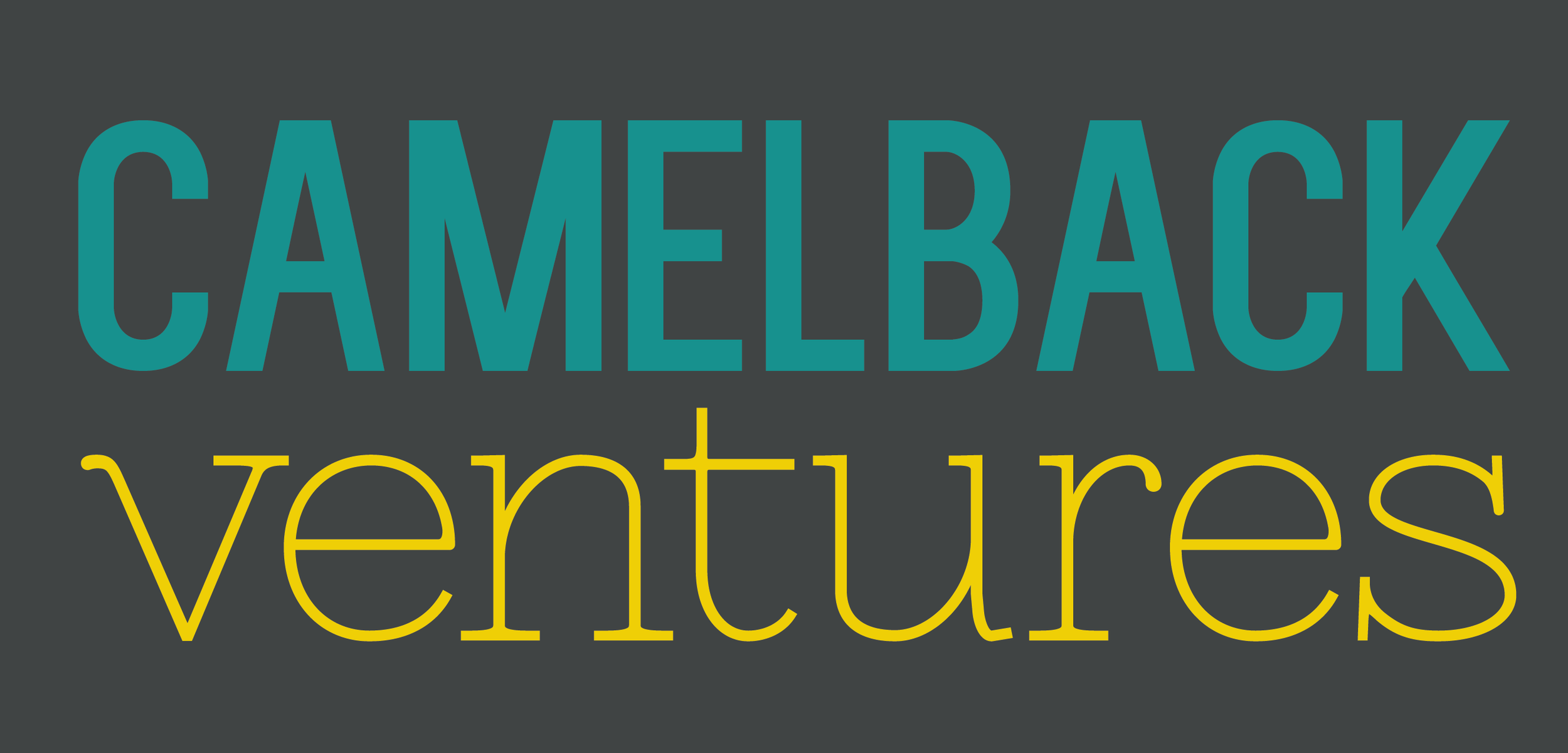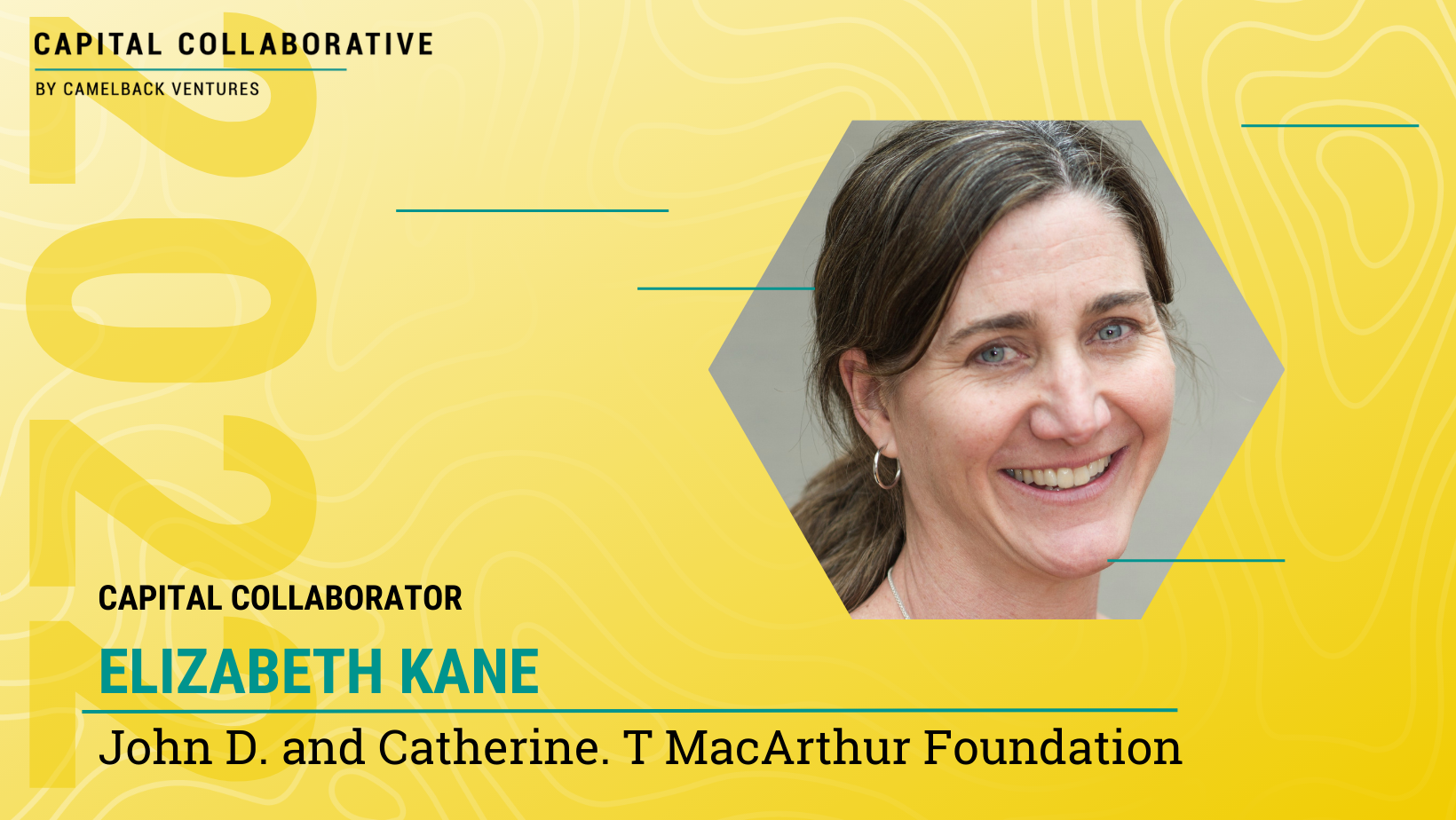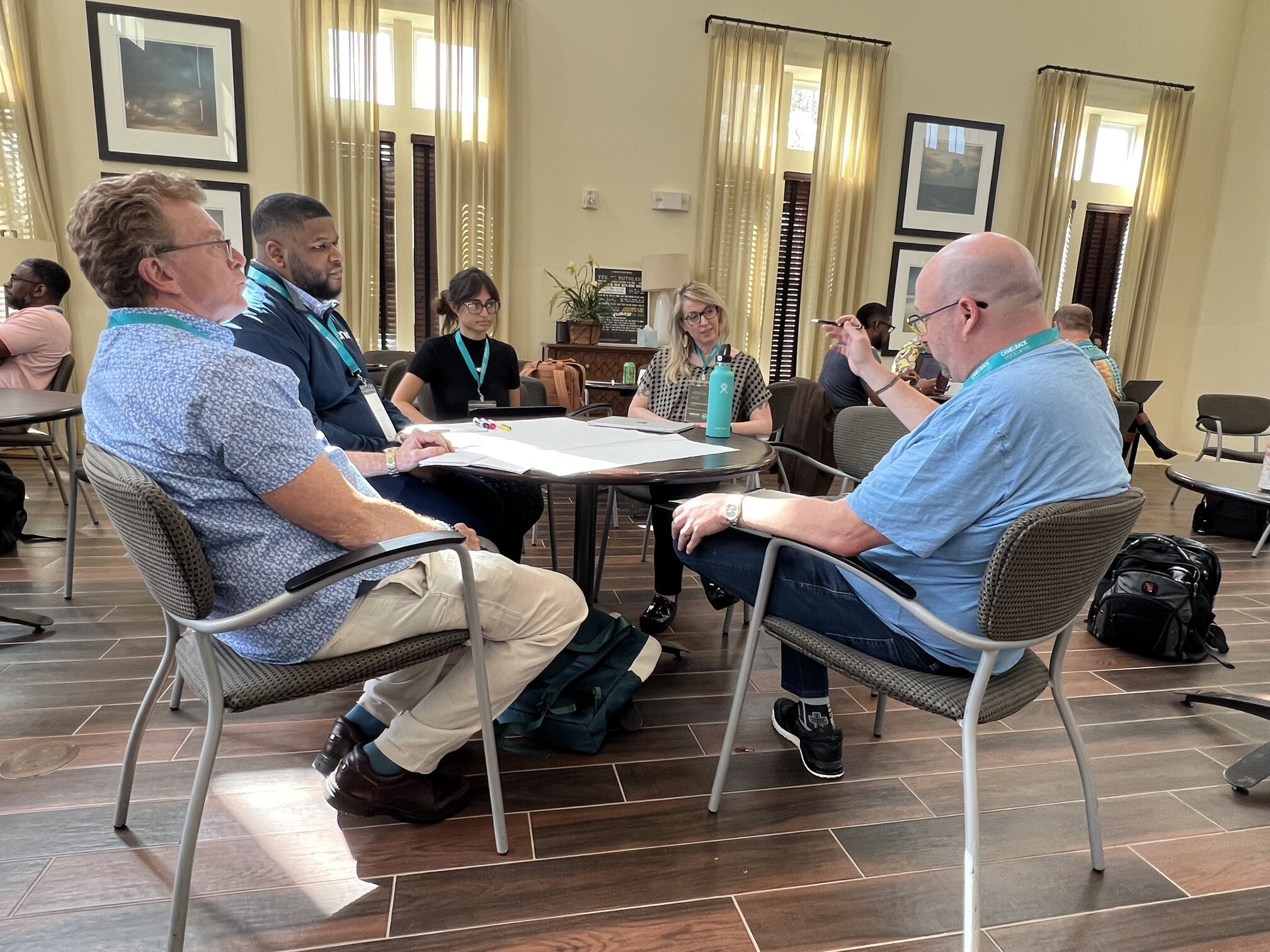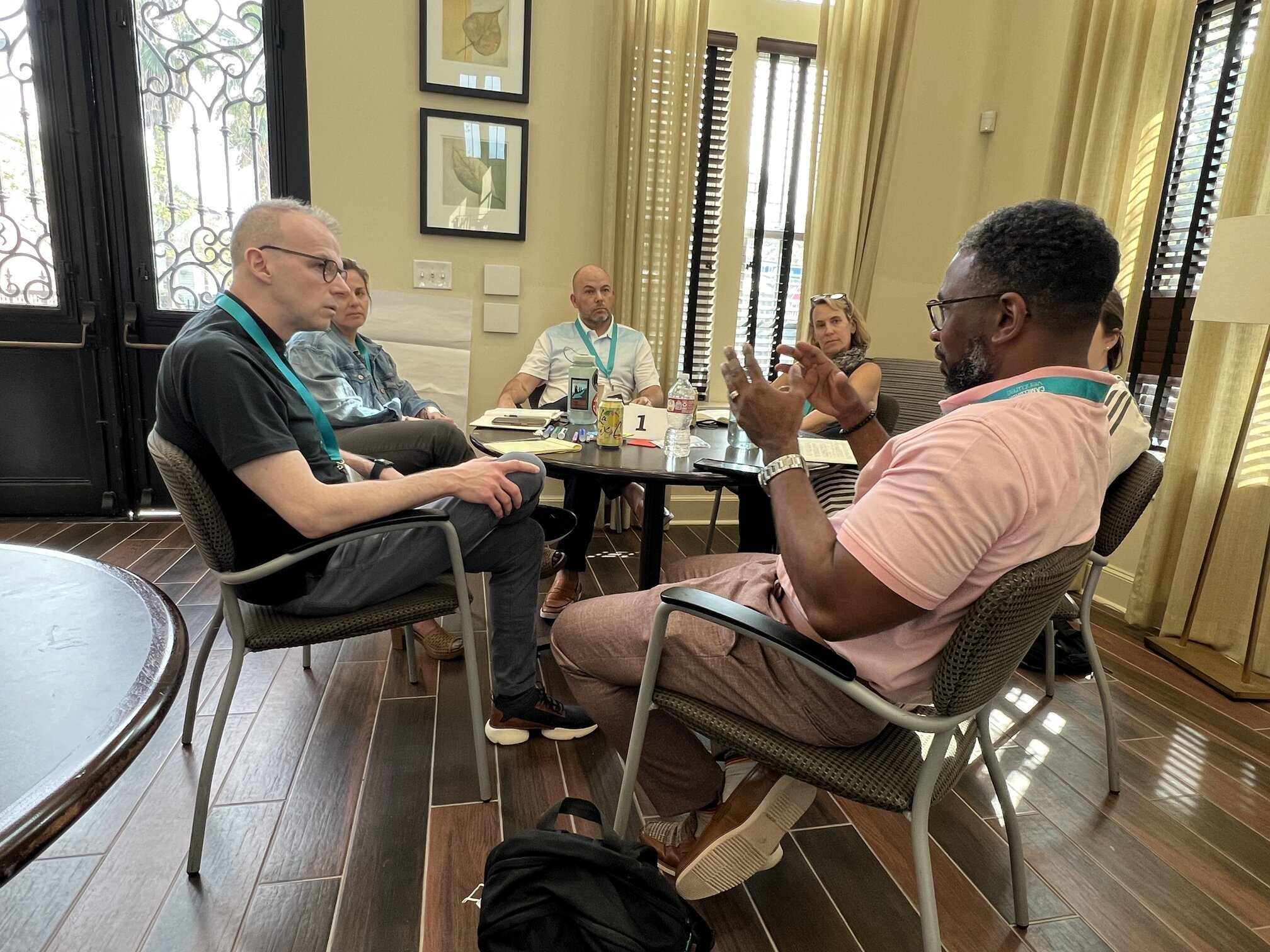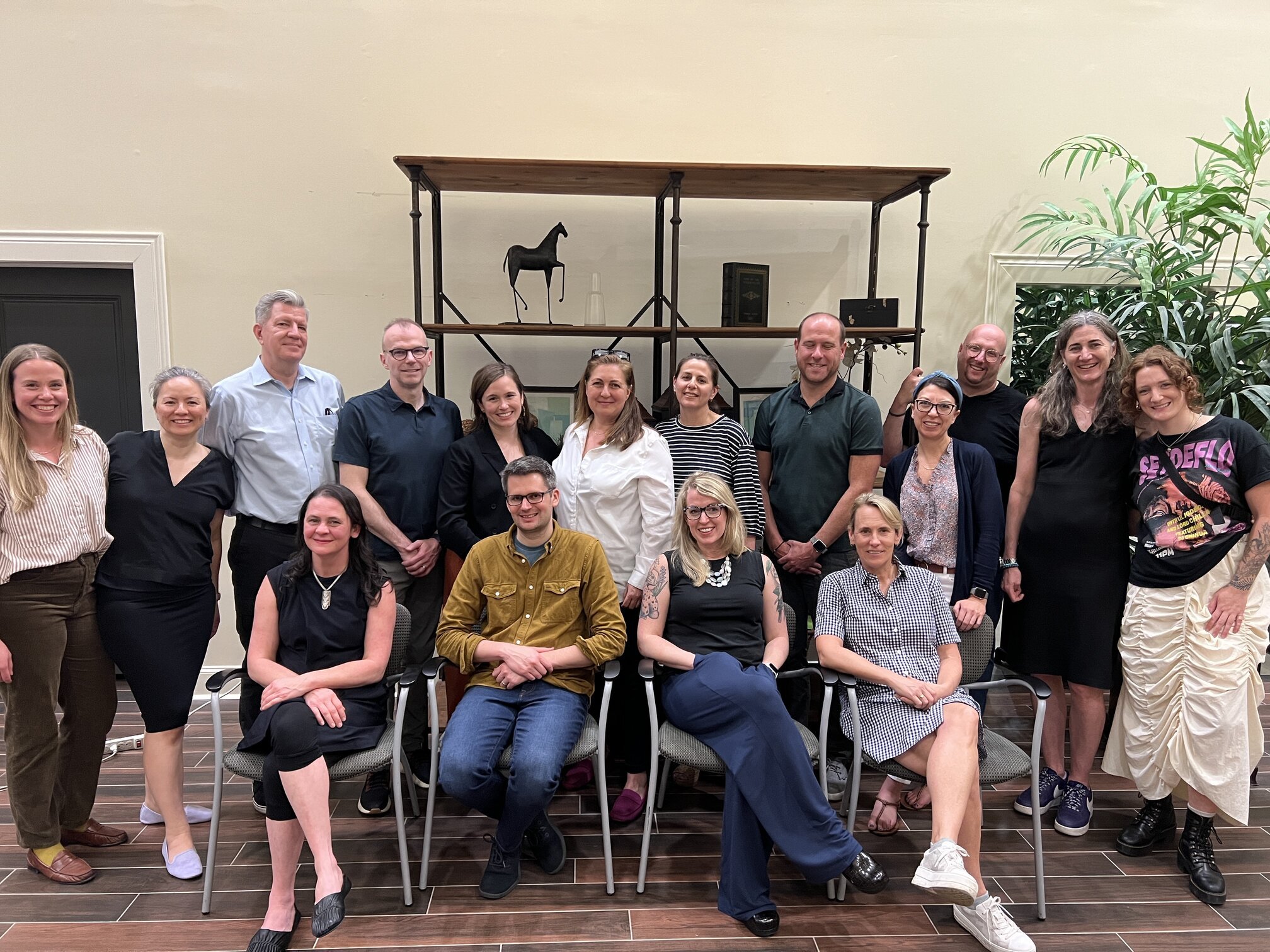Meet the Capital Collaborators: Elizabeth Kane + John D. and Catherine. T MacArthur Foundation
What spurred you to apply for a racial equity/justice learning cohort?
I was attracted to the emphasis on learning with others and learning over a seven month period. The Capital Collaborative wasn't one training session and done, where the expectation is to become an expert overnight. Or, you do the training, and then nothing happens afterward because you don't practice. I wanted to continue training to develop the new muscle memory and discipline to do things differently.
I was also drawn to the longer-term, iterative curriculum. We would learn, be pushed to train new muscles and see the world in new ways, and then test those muscles, backtrack, push again, and be continually supported in various ways. We revisited concepts over and over with our coaches, cohort group, and partners.
Why did you want to join the Capital Collaborative cohort?
At the MacArthur Foundation – where we continuously work together to learn, wrestle with how we have perpetuated racial injustice, and iterate on how to work internally and externally for racial justice with all Staff – our BIPOC colleagues have been playing a leading role in this work. I felt overly self-conscious of my involvement; fearful of making mistakes, asking too many questions, saying or doing things that cause harm to others, taking up too much space, and not letting others lead. Essentially, being fearful of being a White supremacist.
The White affinity space of Capital Collaborative appealed to me as a space in which to build my muscles, make mistakes, and explore how to wrestle with my White racial identity and White privilege. I wanted to understand my White privilege, acknowledge it, and figure out whether and how to use it for racial justice. Or, lose it or transform it if possible. I wanted to explore how to be a White ally, upstander, and leader in the field with other White leaders in philanthropy -- but not in a way that upholds and perpetuates racial injustice.
What didn't you know before the Capital Collaborative Cohort that you know now?
There is so much I didn't know before the cohort! What I do know now -- in both my heart and my head (and within my whole body) -- is that I cannot do this work alone. In fact, that idea is White supremacy/privilege at work. This work necessitates collaboration; working together; and deep, intentional listening. Racial justice work is about organizing a collective effort to change systems.
Capital Collaborative Summit 2 in New Orleans, LA
What session or moment changed one of your beliefs?
There were so many moments during the Capital Collaborative journey that changed me, my beliefs, and my thoughts. Early on, I had a paradigm shift moment when I really internalized the fact that the learning and work I am doing is about developing the muscle to tolerate racial discomfort. As a White person, I need to live in the racial discomfort. That is not to say I tolerate racial harm or trauma, but instead recognize I need to be in "disequilibrium." It is only then that I, as a White person, can see and experience with clarity what racial justice is. I wrote down a quote from one of our early sessions with DEI Works Collective in my notebook (I acknowledge that the actual words spoken may not have been stated as I recorded it): "We (White people) are only uncomfortable when there is racial justice.”
Another moment that changed my thinking and beliefs was when we discussed White peoples’ work: it is justice and reparations! White people built the systems and structures of philanthropy and we can and must change them. Black people are doing the work of their liberation. That isn't our work to do. White people in philanthropy must do the work of dismantling the mindset of Benevolent Control where we (White people) are still at the center, and hold on to power. The work I and many others are doing to build a Philanthropy Data Commons (PDC), I think, is disrupting this mindset.
During Summit 2, Charles McDonald from Actualize Impact also made a lasting impression on me: "We learn through the accumulation of lessons. We change through the accumulation of practice." We have been practicing racism for a really long, long time. Capital Collaborative has helped and is helping me ground my values and add intentional learning, and pushes and supports me to practice anti-racism.
The Capital Collaborative by Camelback Ventures works with White funders and social impact investors who want to deepen their individual and organizational commitment to racial and gender equity in philanthropy — but may not know how. You can learn more about how to get involved by submitting an interest form for the Capital Collaborative’s next cohort or signing up for the newsletter.
